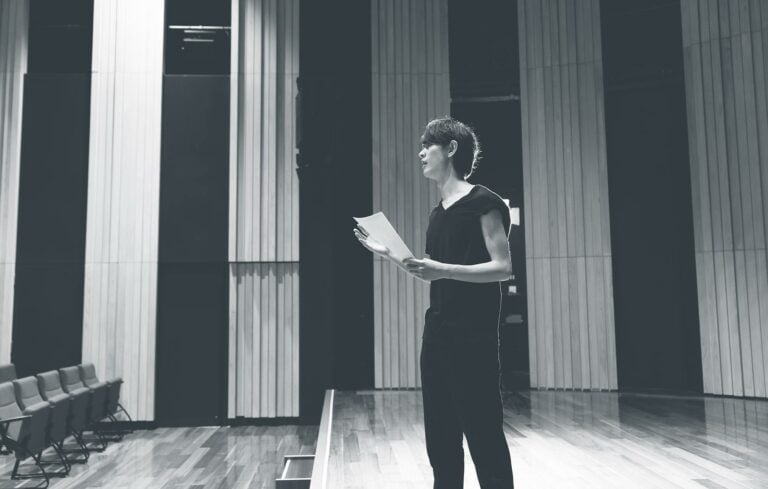
How to put on a Theatre Show
A step by step guide to making theatre
The waiting game can be frustrating as an actor, and the sheer act of waiting for the next audition or project can create a lot of unwanted anxiety and stress. It makes you feel powerless as an artist because you are putting the progress of your career into the hands of others. So simple question: Why wait?
Putting up your own work is the most empowering endeavour an actor can pursue. Not only does it give you agency, it gives you greater insight into how the theatre industry works, and diversifies your skills as an artist. In this industry, action is always better than inaction, and people will take notice of your proactive attitude. The simple act of pulling a show together and putting yourself out there will give you a reputation of someone that gets things done, someone that is passionate about the art form, and stop you from being “just another actor”.
So, where do you start? What do you do? Don’t worry, StageMilk has got you covered.
Finding a Show
Okay first step. What to put up?
Choosing the right show is the first hurdle to putting up your own work, and the best advice I can give is this: be realistic. Do you really have enough money to pull off The Crucible? Can you assemble the cast needed for a Shakespeare? Do people actually want to see your interpretation of Waiting for Godot? Are you too young/old/short/tall to play that leading role you always wanted? Has the show been done recently in your city, and if so, are you going to do it differently enough to warrant staging it again? Tough questions, but you need to be honest with yourself.
Working with the resources you have, rather than against them, can save you a lot of time and stress during the process, and helps guarantee the success of the show. Find a show that you know you can cast easily, that you know works within your budget and that is versatile with its staging. Modern shows are perfect for this, as are short plays by established masters, so do some research and read LOTS of scripts. Script resource sites are great for this, or buying collections of your favourite authors can lead you to some fantastic plays. Unknown gems are hidden everywhere, and are often not performed by the bigger companies, so think outside the box, and deliver something unique.

Once you find a script, the next thing to consider is rights. You NEED to get rights to a show, otherwise you can be sued, and nobody wants that. Getting performance rights to a show can be a long process, and they are not always available for a number of reasons, but it always starts with an email. A simple google search can lead you to the publisher or agent and then you can start up a dialogue with them. Rights do cost money, and the price depends on a number of factors, including your season length, seat numbers, and whether you are planning a professional or amateur season. Again this is a conversation to start with the publisher or agent of the script you are after, so just jump in and start sending emails. You are never going to know unless you ask.
Finding a Theatre Space
Space is vital. You can’t put up a show unless you have a space. There are really three approaches to this. Submissions to theatre companies, hiring a ‘found space’, or registering for a festival.
Most theatres, whether independent or professional will have a submissions season. This means they will accept show proposals from the greater theatre community to build their next season. These submissions are often very competitive, and can happen anywhere from three months to a year before the start of a season, so you need to be organised and have your proposal ready to go. Keep your ear to the ground, and regularly check your cities theatre websites to make sure you don’t miss out on these submission rounds. Don’t be afraid to email the company with any questions you have, as the more information you have, the better your submission will be, and the more likely you are to land yourself a slot.

Found space is another option. This means finding a non-traditional theatre space, and renting it for your season. This is a good option for your first show, as it means you don’t have to compete with others and you also have free reign over the length of season. Galleries, bars and warehouses can work well for this, but consider the logistics before diving in. Can you light it? Can you fit in seating? Is it too noisey? Can people get there? If these factors aren’t a problem, get in there and start creating!
Festivals, especially Fringe Festivals are a great option. You have the support of a large cooperative organisation that can help you find space and sell tickets. It is a pay-to-play scenario, but if done right a good fringe season can be a great learning experience, a lot of fun, and very profitable. Fringe Festivals happen all year round all over the world and in many cities, so make sure you check out what is happening near you, so you are ready for the next registration.
Assembling a Team
As actors we often first think about the cast as the draw card for what makes a good show, but the actors (sorry everyone) are really the least important part of the theatre making team.
Find a good producer and a good director. The producer will make sure you actually sell some tickets and that the business side is covered, and the director will make sure the show gets up and looks good. Securing these team members are also a vital factor in securing rights and creating successful submissions. There is a reason there are so many jobs in theatre, and that is because each job requires its own skill set, and as actors we often don’t realise just how important the behind the scenes work is in guaranteeing a successful show.

Next find a stage manager. They will ensure direct lines of communication between cast, creatives and production team and organise rehearsals, props and ensure the smooth running of the show each night.
Designers for set, costume, lighting and sound lift the professionalism of the show, but if its a simple production you can get away with doing this in house. The more complex the show, the more vital these roles become.
If you don’t know where to start, start sending emails to get some contacts or get in touch with people you’ve worked with before. People in independent theatre, love theatre, and often are happy to work for profit share if the project is inspiring and the team is good to work with. So be professional and accommodating and these roles will be easier to find. Or if you want to try your hand at these roles yourself, go for it! Just maybe get some advice from some professionals.
Casting your Play
If you’re an actor, you know actors, and those actors know actors so trust you have resources to find the right cast. If you know people that are right for the roles there is no harm in just offering people parts; you are not obliged to audition unless you want to. That being said, make sure you cast age appropriate. You are in the real world now, not drama school, so don’t get a 25 year old to play a 60 year old.

If you do want to hold auditions and see people from the greater acting community, online casting resources are a great way to find actors. Be professional and find a space for auditions, set allocated times, be clear about how you want them to audition, and also tell potential auditionees what sort of payment, if any, they could be expecting.
The most important part of casting is getting a good group of people to work with, that are passionate about the project and available to commit to the rehearsals and performances, so make sure you have a chat to them at the audition, as well as seeing them work.
Diversify as an Artist
One of the best parts about putting up your own work is giving yourself the opportunity to diversify as a theatre maker, and try something new. The more roles you try, the more you will learn about theatre as a whole, and the more you will grow as an artist.
It can be daunting transitioning from an actor to a director, or writing your first script, or handling the business end as a producer, but you will never know if you have a flare for it until you try. My only advice, is get some advice. If you want to try writing, send your drafts to a writer or a dramaturge. If you want to try directing, ask to sit in on rehearsals of other productions, find a mentor, or simply offer to buy someone you respect a coffee or a beer so you can pick their brain. People in the industry are always willing to meet other passionate theatre-makers, so put yourself out there and absorb as much as you can, from as many people as you can.
If at First you Don’t Succeed

If it’s your first time putting up a show, you may smash it, or you may bomb. Either way, treat it as a learning experience and have pride in the fact YOU made it happen. Each time you put up a show you will learn more and more, so don’t expect to get everything right the first time. Even if you have a critically acclaimed season for your first attempt, think about what you could have done better and acknowledge what went right so you can do that again for your next show.
People are more approachable than you think so don’t be afraid to get in contact with theatre makers you respect. Send out emails, make phone calls and ask questions. The worst case scenario is they don’t respond and the best case scenario is you could develop a working relationship with an inspiring professional.
The most important part of putting up your own work is giving yourself the power over your own career and your own creative output. SO what are you waiting for?

Leave a Reply